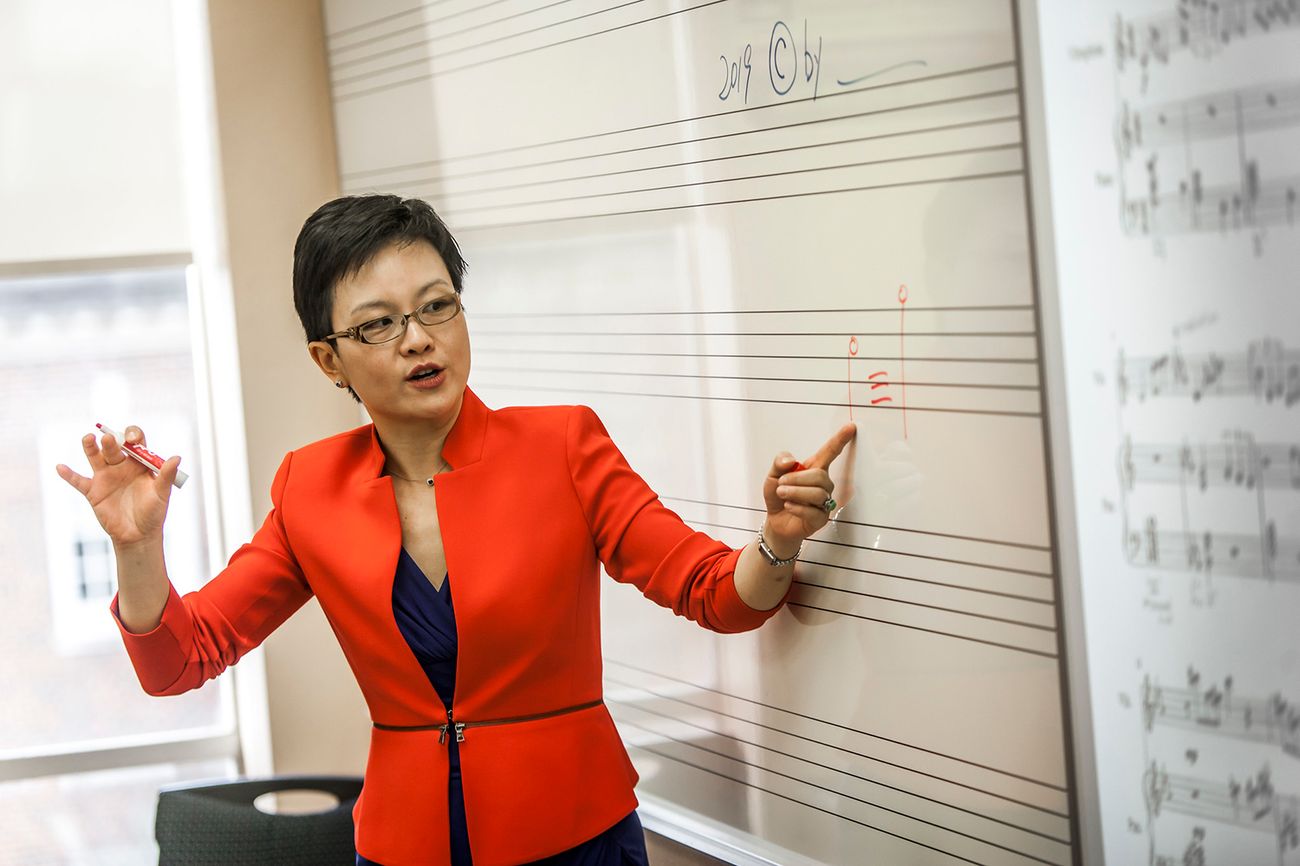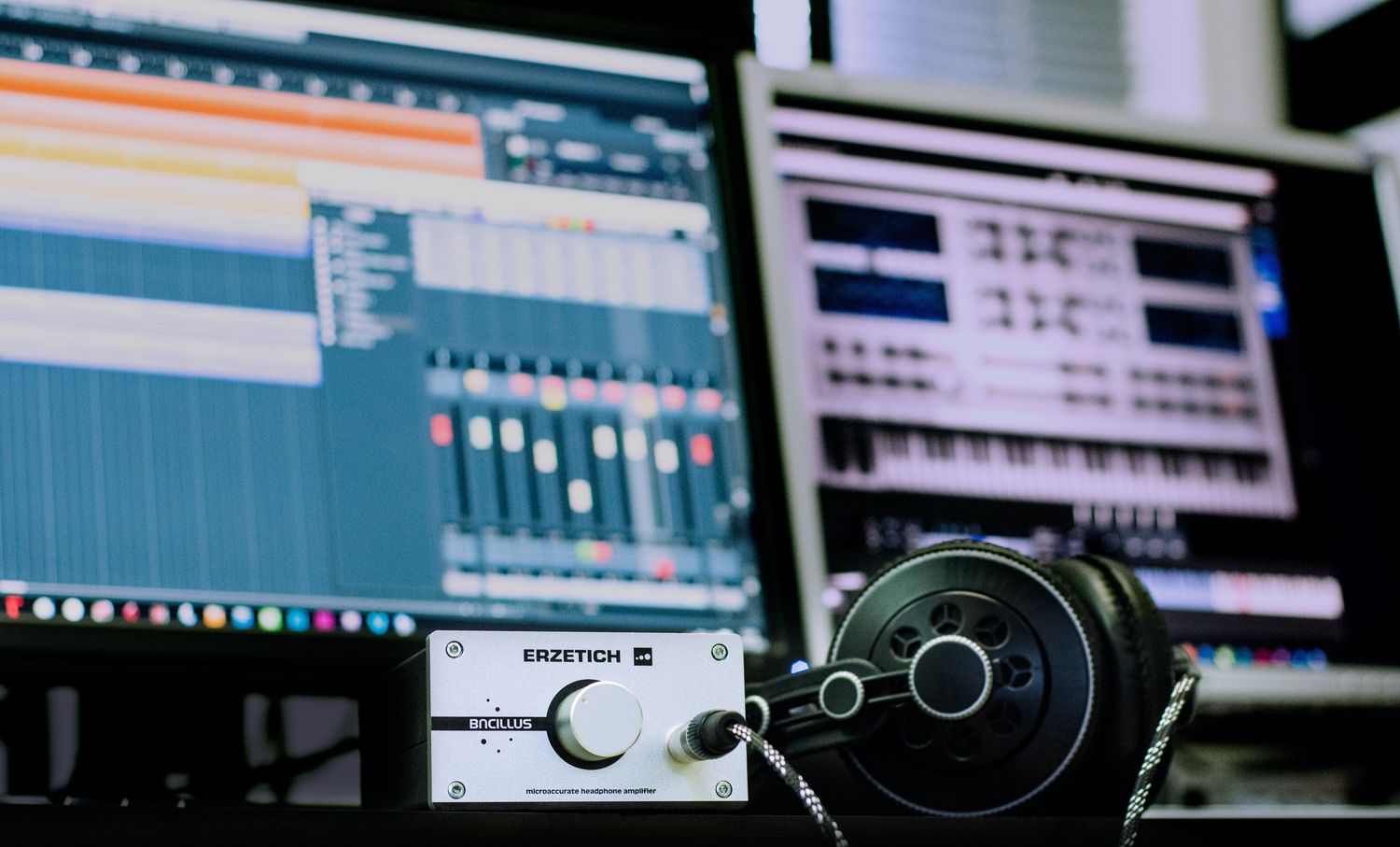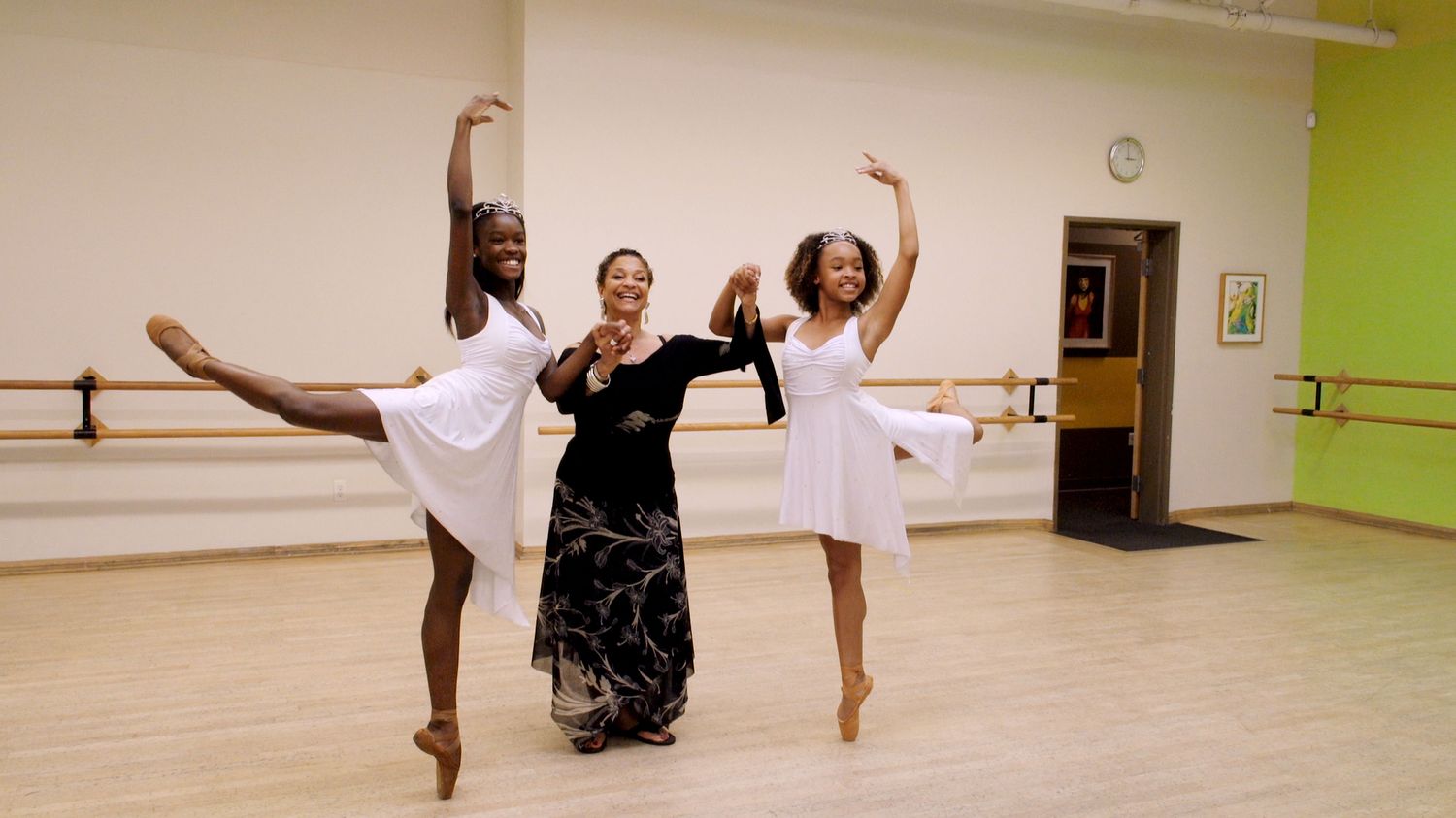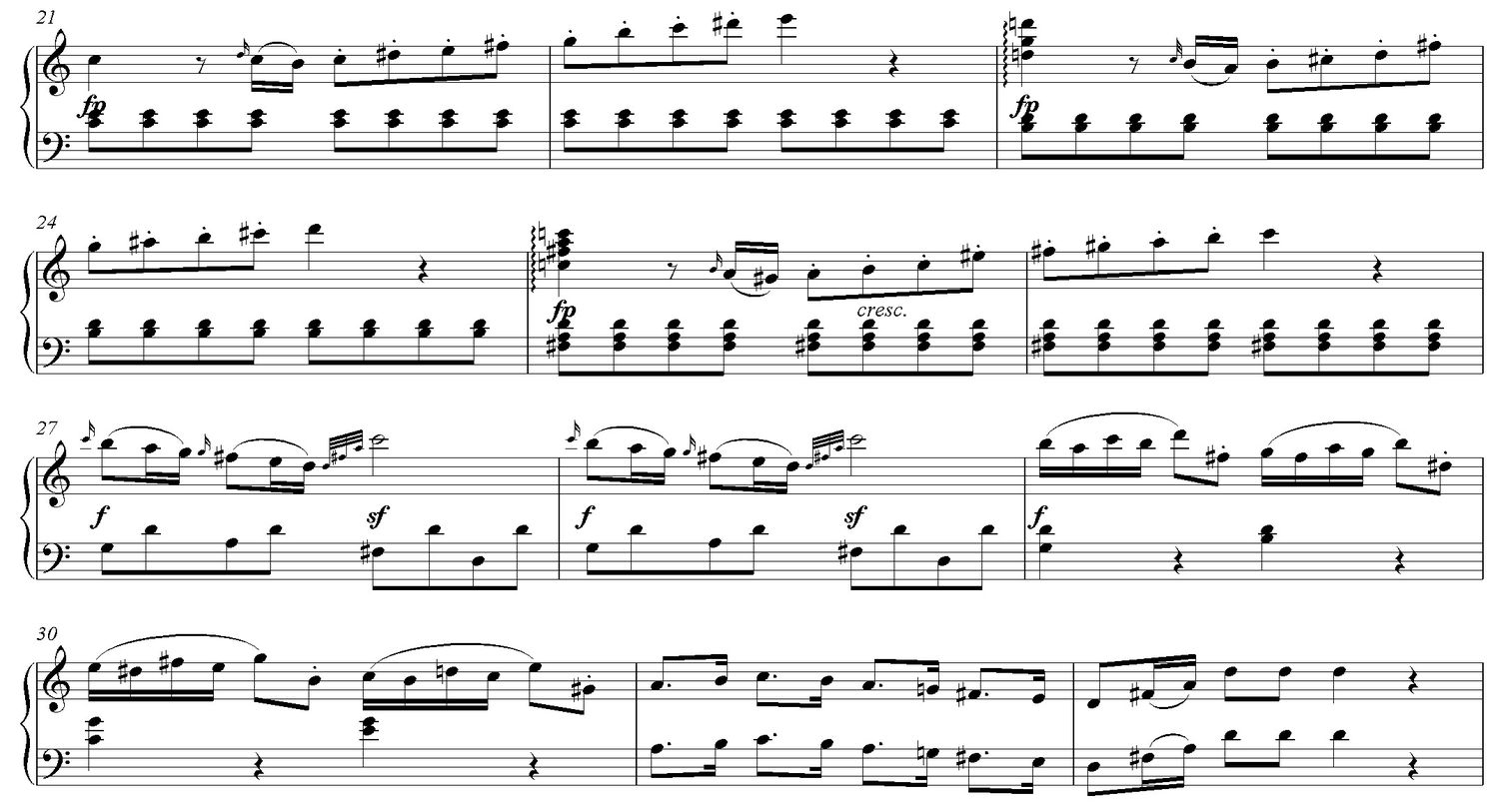Home>Production & Technology>Music Theory>How To Become A Music Theory Teacher


Music Theory
How To Become A Music Theory Teacher
Published: January 30, 2024
Learn how to become a music theory teacher and share your passion for music education. Explore courses and qualifications for teaching music theory.
(Many of the links in this article redirect to a specific reviewed product. Your purchase of these products through affiliate links helps to generate commission for AudioLover.com, at no extra cost. Learn more)
Table of Contents
Introduction
Becoming a music theory teacher is a rewarding and fulfilling career path for those who have a deep understanding and passion for music. Music theory is the study of the fundamental principles and structure of music, and teaching it provides an opportunity to share that knowledge with others and inspire the next generation of musicians. Whether you are a professional musician looking to diversify your skills or someone with a strong foundation in music theory, becoming a music theory teacher can open doors to a fulfilling career in education and music.
In this article, we will explore the steps to becoming a music theory teacher, from developing your own music theory skills to gaining teaching experience and building a reputation in the field. We will also discuss the importance of networking and provide tips to help you start your music theory teaching career on the right foot.
If you have a passion for music and a desire to share your knowledge and love for music theory, then this article is for you. So, let’s dive in and discover how you can become a music theory teacher and make a positive impact on the lives of aspiring musicians.
Step 1: Developing Your Own Music Theory Skills
Before you can effectively teach music theory to others, it is essential to have a solid foundation in the subject yourself. This means developing and honing your own music theory skills. Here are some key steps to follow:
- Start with the basics: Begin by familiarizing yourself with the fundamental concepts of music theory, such as notes, scales, chords, and rhythm. There are many resources available, including books, online courses, and tutorials, that can help you grasp these concepts.
- Study and analyze music: Listen to a wide variety of music across different genres and styles. Analyze the melodies, harmonies, and structures, paying attention to how different elements come together to create the overall composition.
- Practice sight-reading and ear training: These skills are crucial for a music theory teacher. Sight-reading involves being able to read and play music notation fluently, while ear training helps to develop your ability to recognize and identify intervals, chords, and melodies by ear.
- Take formal music theory classes or courses: Consider enrolling in a formal music program or taking specialized music theory courses. These courses can provide a comprehensive understanding of advanced music theory concepts and techniques.
- Apply your knowledge through composition and improvisation: Put your music theory skills into practice by composing your own music or improvising melodies and solos. This will not only reinforce your understanding of theory but also enhance your creativity as a musician.
Remember that developing your music theory skills is an ongoing process. Continually challenge yourself to learn new concepts and techniques, and push the boundaries of your understanding. As you deepen your knowledge and proficiency in music theory, you will be better prepared to guide and inspire your future students.
Step 2: Formal Education and Training
While a deep understanding of music theory is crucial, pursuing formal education and training can give you a competitive edge as a music theory teacher. Here are some steps to consider in this stage of your journey:
- Research music education programs: Look for universities, colleges, or conservatories that offer music education programs with a focus on music theory. Look into their curriculum, faculty qualifications, and reputation in the field.
- Enroll in a music education program: Once you have identified a suitable program, apply and enroll. These programs typically cover a wide range of subjects including music theory, music history, pedagogy, and teaching techniques.
- Take specialized music theory classes: Within your music education program, consider taking additional classes or electives that delve deeper into specific areas of music theory that interest you. This could include topics such as advanced harmony, counterpoint, analysis techniques, or composition.
- Seek private lessons: Supplement your formal education with private lessons from experienced music theory teachers or composers. This can provide personalized instruction and guidance tailored to your specific needs and goals.
- Attend workshops and conferences: Stay updated on the latest developments in music theory by attending workshops, conferences, and seminars. This is a great way to learn from experts in the field and network with other music theory educators.
Formal education and training not only provide you with the knowledge and skills necessary to be an effective music theory teacher but also offer opportunities to build connections within the music education community. Take advantage of these resources to expand your horizons and stay at the forefront of music theory education.
Step 3: Gaining Teaching Experience
Gaining teaching experience is a crucial step in becoming a successful music theory teacher. It allows you to apply your knowledge, develop your teaching skills, and build a track record that will attract students. Here are some ways to gain teaching experience:
- Volunteer or intern at local schools or music programs: Offer your services as a music theory tutor or assistant at local schools or music organizations. This will give you hands-on experience working with students of different ages and skill levels.
- Offer private lessons: Start offering private music theory lessons to friends, family, or acquaintances. This will help you refine your teaching methods and build a reputation as a music theory teacher.
- Join community music programs: Get involved in community music programs, such as youth orchestras or choirs, where you can assist with music theory instruction or provide workshops and masterclasses.
- Apply for teaching assistant positions: Look for opportunities to work as a teaching assistant at universities or music institutions. This will allow you to assist experienced music theory teachers and gain valuable classroom experience.
- Create online teaching materials: Develop online resources, such as video tutorials or written lessons, and share them on platforms like YouTube or your personal website. This not only helps you build an online presence but also showcases your expertise as a music theory teacher.
Gaining teaching experience is an ongoing process. Continually seek opportunities to refine your teaching skills and adapt your methods to different types of learners. The more teaching experience you gain, the more confident and effective you will become as a music theory teacher.
Step 4: Networking and Building a Reputation
Networking and building a reputation are crucial steps in establishing yourself as a music theory teacher. Building connections within the music education community can lead to valuable opportunities and referrals. Here’s how you can effectively network and build a solid reputation:
- Attend music conferences and workshops: Participate in music conferences and workshops to meet other music educators and professionals. Engage in conversations, ask questions, and exchange ideas. These events provide valuable networking opportunities and a platform to showcase your expertise.
- Join professional music organizations: Become a member of professional music organizations, such as the National Association for Music Education or local music teacher associations. These organizations often host events, provide resources, and offer networking opportunities with fellow music educators.
- Collaborate with other musicians and teachers: Connect with other musicians, composers, and music teachers to collaborate on projects or share teaching ideas. By working together, you can expand your network and gain insights from their experience and expertise.
- Offer workshops and presentations: Volunteer to present workshops or give presentations at music schools, conferences, or local community centers. This allows you to demonstrate your teaching skills, share your knowledge, and establish yourself as an expert in the field.
- Utilize social media and online platforms: Create a professional presence on social media platforms and music educator forums. Share valuable content, engage with the music education community, and promote your teaching services. This can help you connect with potential students and colleagues.
- Encourage testimonials and referrals: As you gain teaching experience, ask your students for testimonials and referrals. Positive reviews and recommendations from satisfied students can greatly enhance your reputation and attract new students.
Remember, building a reputation takes time and effort. Be consistent in your teaching approach, deliver quality instruction, and continually seek opportunities to showcase your skills and knowledge. By networking and building a strong reputation, you can establish yourself as a respected music theory teacher in the industry.
Step 5: Starting Your Music Theory Teaching Career
Congratulations! You have developed your music theory skills, acquired formal education and training, gained teaching experience, and built a network and reputation within the music education community. Now it’s time to take the final step and start your music theory teaching career. Here’s how you can get started:
- Create a teaching plan and curriculum: Develop a teaching plan and curriculum that outlines the topics, objectives, and learning outcomes for your music theory lessons. This will provide structure and clarity for both you and your students.
- Set up your teaching space: Whether you plan to teach in-person or online, create a dedicated teaching space that is conducive to learning. Make sure you have the necessary equipment, technology, and resources to deliver high-quality lessons.
- Market your teaching services: Utilize various marketing strategies to promote your music theory teaching services. Create a professional website, utilize social media platforms, advertise in local music stores or community centers, and reach out to local schools or music organizations to spread the word about your teaching career.
- Offer trial lessons and discounts: Attract potential students by offering trial lessons or discounts for their first few sessions. This will allow them to experience your teaching style and approach before committing to regular lessons.
- Continuously update your knowledge and skills: Stay abreast of current music theory research, teaching methodologies, and technological advancements in music education. Attend workshops, online courses, or pursue advanced certifications to enhance your teaching skills and expand your knowledge.
- Seek feedback and continuously improve: Encourage feedback from your students and their parents to gauge their satisfaction and identify areas for improvement. Use their feedback to refine your teaching methods and tailor your approach to meet the specific needs of your students.
- Build ongoing relationships with students: Foster a positive and supportive learning environment for your students. Build rapport, inspire their passion for music theory, and encourage their progress and growth as musicians.
Starting your music theory teaching career is an exciting endeavor. Embrace the challenges and rewards that come with guiding students in their musical journey. With dedication, continuous learning, and a genuine love for music theory, you can thrive as a music theory teacher and make a lasting impact on aspiring musicians.
Conclusion
Becoming a music theory teacher is a fulfilling and rewarding career path for those who have a deep passion for music and a desire to share their knowledge with others. Throughout this article, we have explored the steps to becoming a music theory teacher, from developing your own music theory skills to gaining teaching experience, networking, and building a reputation. Let’s recap the key points:
Firstly, it is crucial to develop a strong foundation in music theory through self-study, formal education, and practical application. Continually challenge yourself to learn and grow as a musician and deepen your understanding of music theory concepts.
Secondly, pursuing formal education and training in music theory and music education can provide you with a competitive edge and valuable teaching techniques. Consider enrolling in music education programs, taking specialized classes, and seeking private lessons to enhance your knowledge and skills.
Next, gaining teaching experience is vital for your growth as a music theory teacher. Volunteer, offer private lessons, join community music programs, and seek opportunities to assist experienced teachers. This hands-on experience will help you refine your teaching methods and gain a track record that will attract future students.
Networking and building a reputation within the music education community is essential. Attend conferences and workshops, join professional organizations, collaborate with other musicians and teachers, and utilize online platforms to showcase your expertise and connect with potential students and colleagues.
Finally, when starting your music theory teaching career, create a solid teaching plan and curriculum, market your services effectively, and continuously update your knowledge and skills. Seek feedback from your students and maintain ongoing relationships to inspire their musical growth.
Remember, becoming a music theory teacher is a journey that requires dedication, passion, and continuous learning. By following these steps and embracing the joys and challenges that come with teaching music theory, you can embark on a fulfilling career that nurtures the minds and hearts of aspiring musicians.











